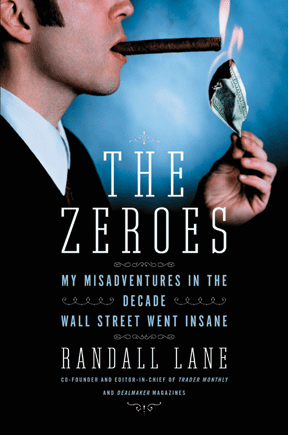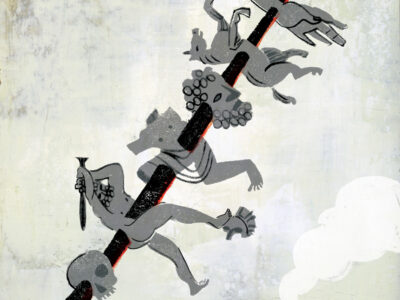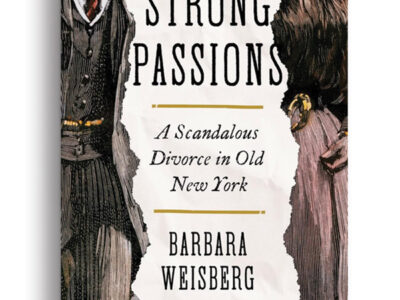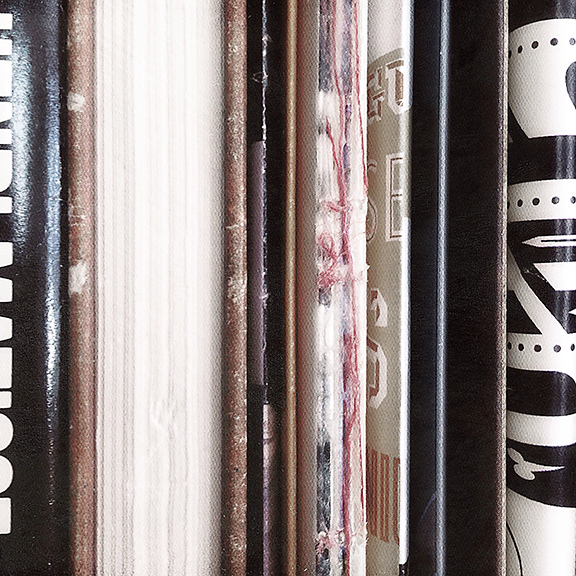
Class of ’90 | As the founding editor of Trader Monthly, Randall Lane C’90 created a glossy magazine exclusively for and about traders—one that celebrated high-level financiers and their high-end accoutrements (private jet, anyone?). In doing so, Lane helped nurture a climate of boundless egoism and material excess, creating a “jealousy machine” with every page printed.
The cover of one issue featured a trader posing with his brand-new, jet-black Rolls Royce Phantom ($328,750), his white Sikorsky S-76 helicopter ($11 million), and his Gulfstream IV ($35 million). Another popular Lane creation was “Celebrity Trader,” a column that played off the fame-finance nexus by giving a celebrity like Billy Bob Thornton or Moby $50,000 to trade with for a week. The money seemed like Monopoly money to everyone involved, and everyone seemed to be landing on Free Parking. To further the magazine’s image, Lane staged decadent parties with unlimited vodka, steak, and cigars, at one point even staging a Wall Street Boxing Championship where the wealthy got to take things to their logical conclusion as they literally tried to knock one another out.
In his recent book The Zeroes: My Misadventures In The Decade Wall Street Went Insane (Portfolio Hardcover), Lane tells the real story of having spent the entire decade of the “zeroes” counting the zeroes at the ends of the checks of his wealthy subjects—then watching his own bank account dwindle as he pumped his money into his company in an increasingly desperate attempt to keep it afloat. The book takes the reader through a not-so-distant time in which Wall Street was a veritable casino, with people betting on the future in what turned out to be a zero-sum game. The Zeroes is simultaneously a fun read and a cautionary tale—an opportunity to have a front-row seat at the party and to experience vicariously the post-party depression of the collapse. And, of course, it’s not without a fair dollop of revelations, including the assertion that John Travolta has “the best fake mane money can buy” and that ballplayer Lenny “Nails” Dykstra—with whom Lane’s company became embroiled in a nasty business dispute—was not quite the genius investor he was briefly made out to be.
The book has received its share of critical acclaim. Business Weekadded The Zeroes to its list of the top 50 business books of the past two years, calling it “a farcical memoir of the financial bubble.”
Lane now says that his experience provided “the narrative arc for a trip to the center of the biggest greedfest in history,” adding that his reality provided him with “very good, very real characters who double as wonderful metaphors.” He recently took time from his job as editor-at-large of The Daily Beast to answer some questions for Gazette freelancer Jordana Horn C’95 L’99.
If there were a lesson to be learned from the book, what would it be? And if there were a lesson you learned from your front-row seat, what would that be?
There are a lot of lessons. The painful, universal lessons of the dangers of debt and leverage. The lessons of risk, and what happens when people are paid for the risks they take, not the rewards they produce. And perhaps most of all, there’s a lesson in groupthink—this decade, the Zeroes, was absurd in so many ways, yet so many people, myself included, closed their eyes and believed what logically couldn’t be true, because they wanted to. At the end of the day, we created ephemeral wealth out of paper, and the universe doesn’t work that way. Wealth is created by producing things and employing people, rather than trading tulips with each other.
Is your attitude toward money different from most other people’s?
I’ve always had a very high risk tolerance, in everything I’ve done. So I was more comfortable risking all my cash than most—to me, that was just part of being fully committed to something. I have very little care or need for material goods—ask anyone who’s seen me dress, or come to my apartment. Money, to me, is just the freedom to do what you want. But it was hard to be in the world I was in and not be corrupted.
Do you think you were corrupted?
I was blinded, as most Americans were. Anyone could have made a fortune betting against the housing market long after the blatant signs were there, yet almost nobody did. We all wanted to believe that during this time, trees—or at least our home equity or 401(k)s—really did grow to the sky. Since I was closer to it all, my blindness was more thorough.
I never bought into the lifestyle, or the materialism—that’s never been my thing, and I was always putting money in, rather than taking it out. But I was jazzed by the action, the thought that I was in the center of this financial revolution that was transforming the planet.
A lot of the anecdotes you reference—some dealing with celebrities, like John Travolta, Larry King, Lenny Dykstra, and Peter Max—are far from fawning. Has there been any fallout from those stories?
I made a pledge going in that I was going to tell the unvarnished truth about everything I saw and everyone who played a role, including myself. There were no heroes in the Zeroes. Funny enough, though, Peter Max called me after the Vanity Fair excerpt, which seemed quite damning to most, to say that while I “took some shots,” as he put it, he was still happy to have it. And Larry King made the book his pick of the week on his website. Which all says something about the human ego.
What are you doing in your post-greedfest career? Do you feel like you’ve turned the volume down on your life?
Happy to be writing again, and helping The Daily Beast become a powerhouse. Life is less stressful now, though I have another start-up or two in me. Just probably not with advertising-dependent magazines for rich people.




